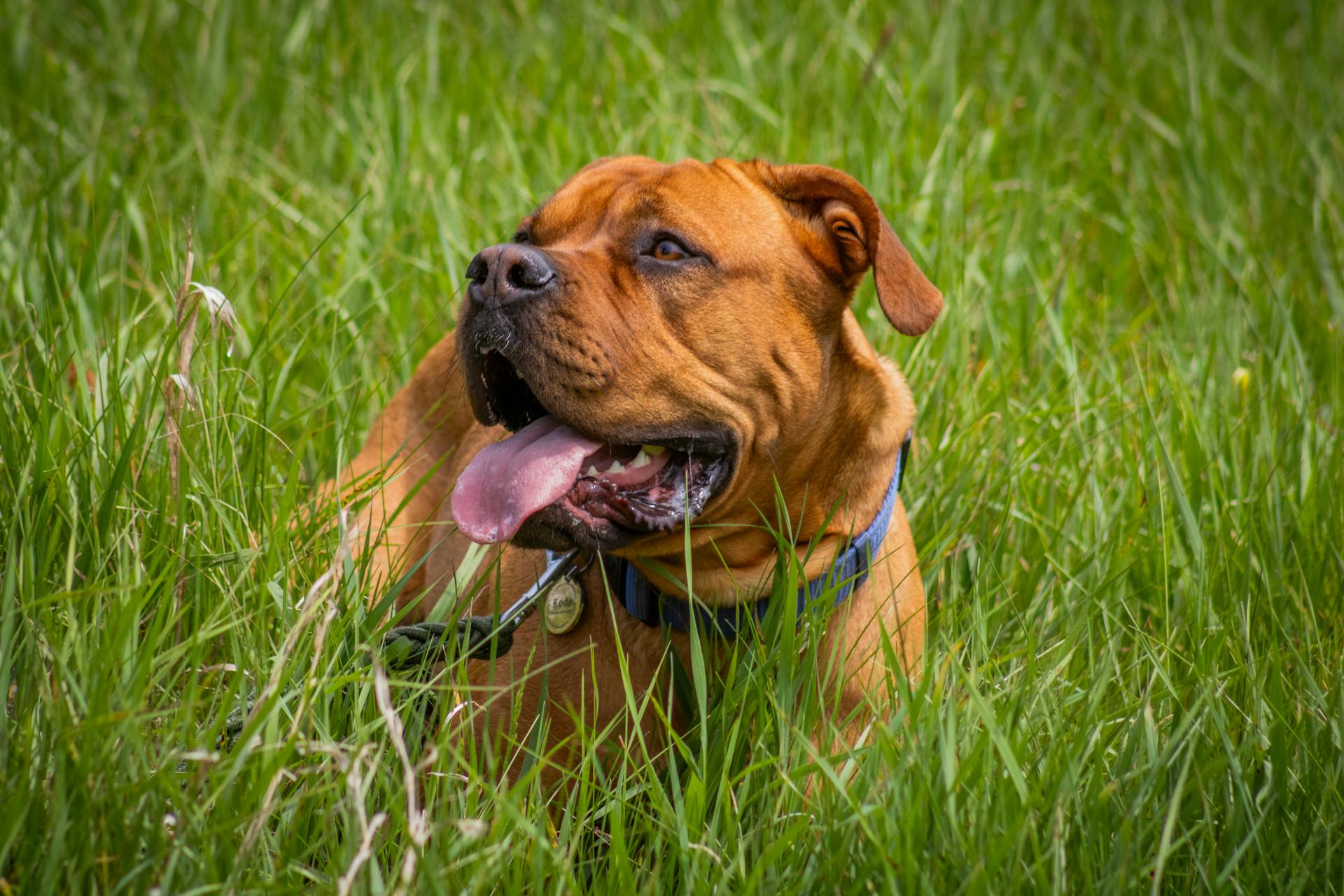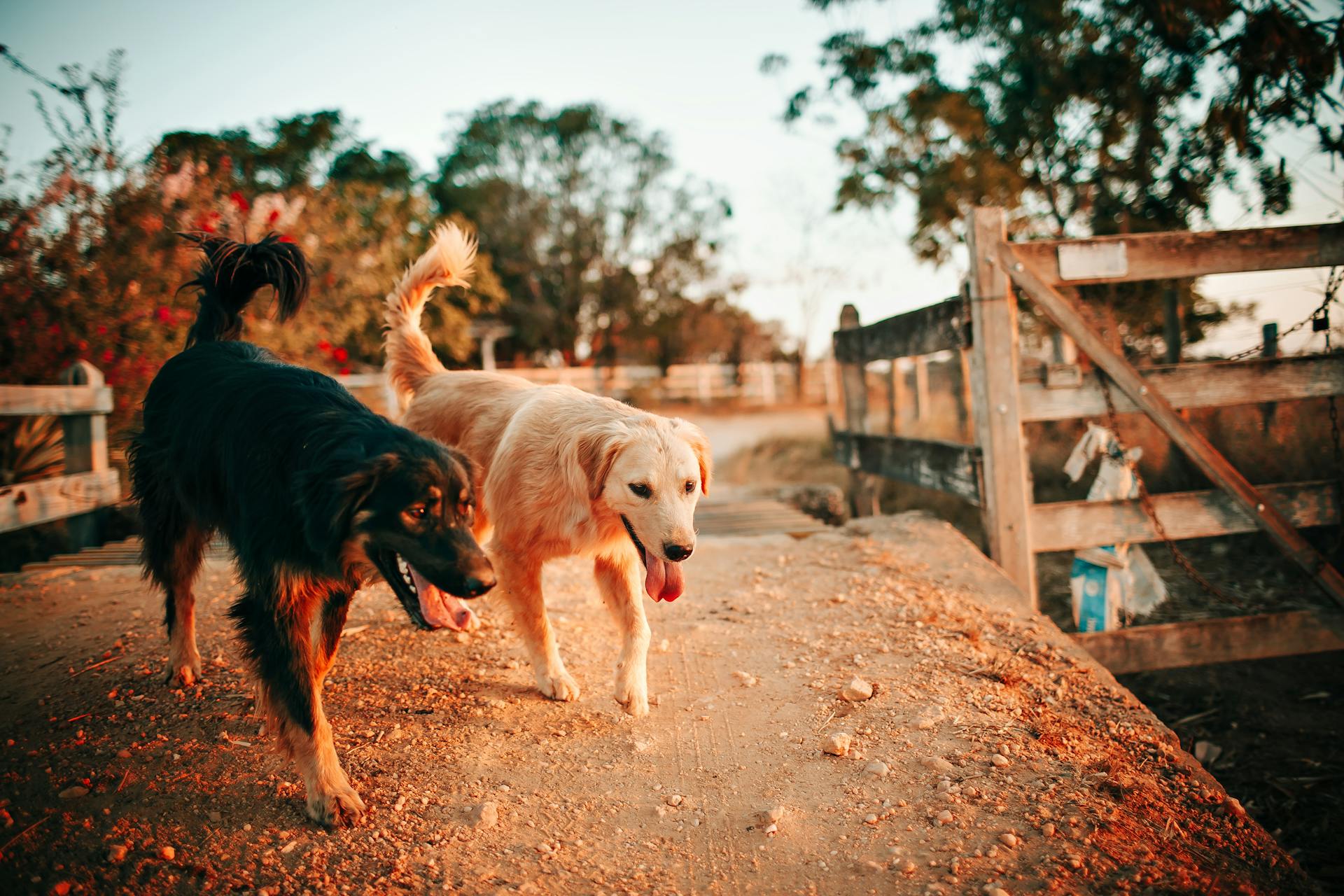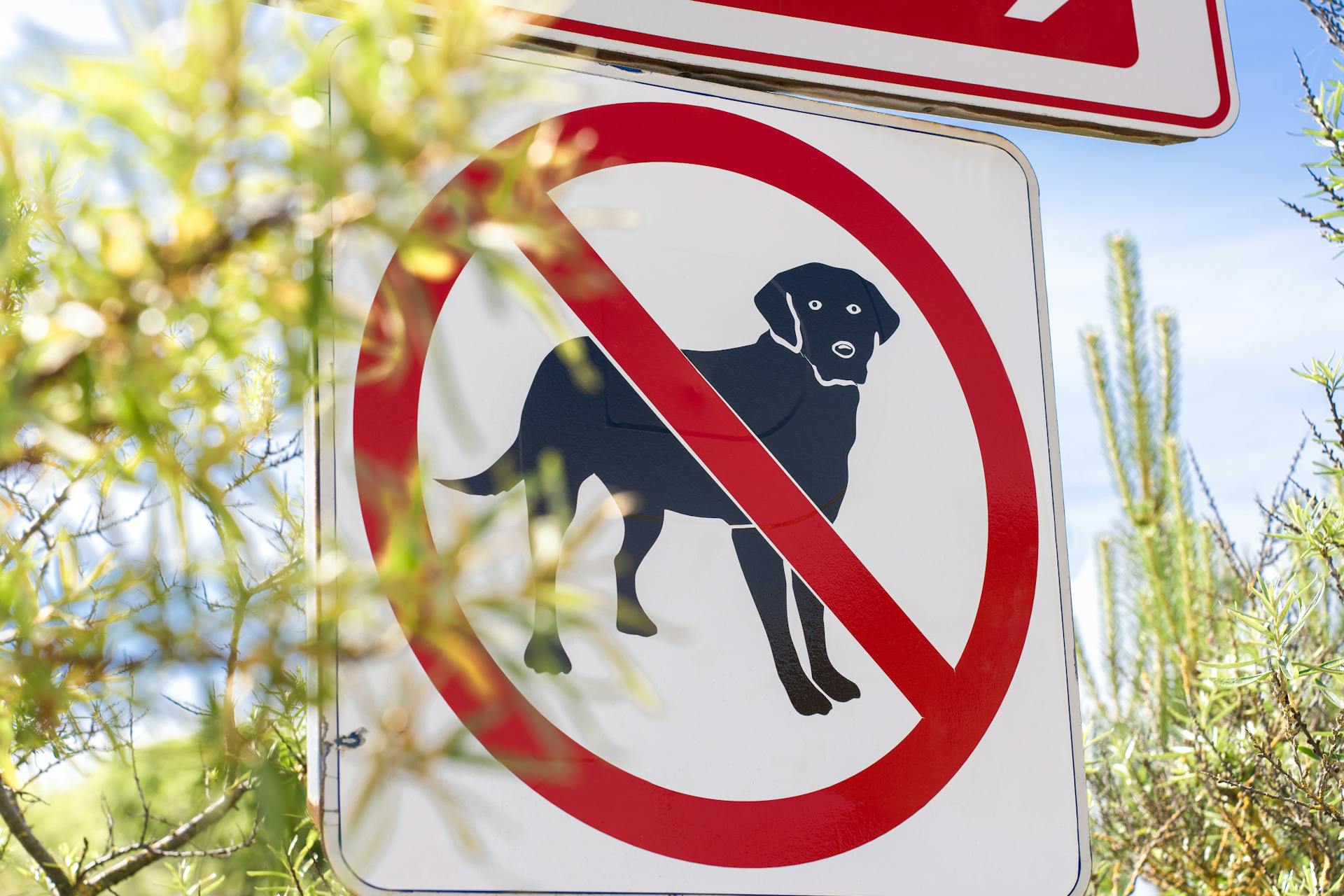
The Dogue de Bordeaux is a large and powerful breed, but are they a safe choice as a pet? The breed's tendency to be protective of their family and territory can sometimes be misinterpreted as aggression, but in reality, they are loyal and loving companions.
Dogue de Bordeaux are known to be prone to certain health issues, such as hip dysplasia and heart problems, which can impact their lifespan and quality of life. This means that owners need to be prepared for regular veterinary check-ups and potential costly surgeries.
Their short, easy-to-maintain coats are a plus for busy owners, but their tendency to drool and slobber can be a challenge. Regular grooming and cleaning up after meals can help minimize this issue.
Overall, the Dogue de Bordeaux can make a wonderful pet for the right owner, but it's essential to consider their specific needs and potential challenges.
Highlighting Breed Risks and Dangers
The Dogue de Bordeaux has a calm and alert temperament, but its size can be intimidating. They are a highly intelligent breed, which is a plus.
Their sheer size means they can inflict significant damage if they do bite, making it crucial to take precautions. This is especially true for families with young children or for people who are not familiar with large breeds.
Dogue de Bordeaux owners have reported that their dogs can become aggressive towards other French mastiffs on walks, which can lead to difficult dog fights. This is a concern for owners who enjoy taking their dogs to dog parks or busy areas.
It's essential for Dogue de Bordeaux owners to be aware of this potential aggression and take steps to prevent it, such as avoiding busy dog parks and areas where they may encounter larger dogs.
You might like: Full Danger Pitbull Dog
Behavior
Dogue de Bordeaux owners have noticed that isolation can breed fear and aggression in their dogs, making them more likely to be suspicious of strangers and noises outside. This is a common factor in stranger attacks, especially during get-togethers.
They can be aggressive towards dogs of the same breed, particularly larger ones, on walks, making it difficult to break up a dog fight. Busy dog parks and other situations where they may encounter larger dogs are best avoided.
Dogue de Bordeaux dogs have a propensity to be protective of their families, which can lead to barking when they sense an unfamiliar presence. Proper training can help manage barking.
Early and thorough socialization is crucial for Dogue de Bordeaux puppies to prevent shyness or fearfulness as they grow. Proper exposure to different people, pets, and environments can make all the difference.
Despite their intimidating appearance, Dogue de Bordeaux are calm and alert breeds with a high level of intelligence. However, their size means that if they do bite, they can inflict significant damage.
Check this out: De Flea Dog
Attack Consequences
A Dogue de Bordeaux attack can have devastating consequences. In fact, there have been reports of French mastiff attacks throughout the U.S. in recent years.
The sheer size of the breed can be overwhelming, as seen in the case of a paramedic killed by a 140-pound French mastiff in Chicago. The victim was alone and unable to fend off the dog.
Even with proper training, a Dogue de Bordeaux can still inflict serious injuries, as in the case of an Amazon driver in the U.K. who was attacked by a French mastiff and left with significant injuries to their arm.
In extreme cases, a Dogue de Bordeaux attack can even be deadly, as seen in the tragic case of a mother and daughter mauled to death by the family's two dogs in Murcia, Spain. There was little warning of the attack, according to the deceased's relatives.
Worth a look: Tibetan Mastiff Dangerous
Defending Against Attacks
If you're ever attacked by a Dogue de Bordeaux, don't wait to seek medical attention - 25% of dog bites lead to an infection.
You should try to get the contact information for the dog owner by speaking with others who were with you during the attack.
It's crucial to report the dog bite to the public health authorities, who will make a record and confirm the dog's rabies status.
Consider detailing your recollection of the attack in a journal to build your case, explaining how the attack has impacted your life and the lives of those around you.
Working with a skilled dog bite lawyer, like David Cowhey, can help you assess any settlement offers from the dog owner's insurance company based on New Jersey dog bite law precedence.
Curious to learn more? Check out: Dogue De Bordeaux Bite Force
Bite Force and Strength
The bite force of a Dogue de Bordeaux is a topic of interest, especially when considering their overall safety and potential danger. A human's bite force is relatively weak, ranging from 120-140 psi.
The Dogue de Bordeaux, on the other hand, boasts an impressive bite force, estimated to be around 500-600 psi. This is significantly stronger than the average human bite.
Several factors contribute to the Dogue de Bordeaux's powerful bite force. Their broad, well-muscled jaw and strong facial muscles allow for a powerful clench. Their large size and build also play a role in their bite strength.
A Dogue de Bordeaux's bite can be extremely painful and potentially dangerous, with the force behind their bite capable of causing severe injury, breaking bones, and causing other forms of trauma.
To put their bite force into perspective, here's a comparison with other breeds:
The Dogue de Bordeaux's bite force is twice as hard as a German Shepherd, Doberman, Chow Chow, or pitbull.
Health and Care
Dogue de Bordeauxs are prone to certain health issues due to their breed characteristics.
Their wrinkly faces and excessive skin folds can lead to dermatitis, a skin problem.
The Kennel Club classifies Dogue de Bordeauxs as 'Category Three' breeds, meaning they've been bred for appearance over health.
This classification refers to their undershot jaws, sometimes-nervous character, and weak back legs.
Some health conditions your Dogue de Bordeaux may develop include elbow dysplasia and hip dysplasia.
These conditions cause the joints not to fit together perfectly, leading to arthritis.
Before breeding, dogs should be screened by x-rays through the BVA/Kennel Club Hip Dysplasia Scheme.
Here are some specific health issues your Dogue de Bordeaux may face:
- Elbow dysplasia
- Hip dysplasia
Breeders should have health-screened the parents of your puppy for these disorders.
Specific Groups
The Dogue de Bordeaux can be a challenge for specific groups of people. Families with small children may need to exercise extra caution around this breed due to their powerful jaws and tendency to be protective of their family.
Guarding instinct is particularly strong in Dogue de Bordeaux, making them a good fit for experienced dog owners who can provide proper training and socialization.
Inexperienced dog owners may struggle to manage the Dogue de Bordeaux's strong will and independent nature, which can lead to behavioral issues if not addressed properly.
Children
Children and Dogue de Bordeaux need to be taught how to approach and play with dogs with care and kindness.
If you have smaller children, it's best not to have a Dogue de Bordeaux as they can accidentally hurt them by knocking them over.
Always supervise children with your Dogue de Bordeaux, especially if they're not used to such a large breed.
Recognising the signs of unhappiness or anxiety in your dog is crucial to avoid conflicts, so make sure you can spot these signs.
A different take: Pit Bulls Are Not Dangerous
Other Pets

If you're considering getting a Dogue de Bordeaux as a pet, you'll want to think carefully about other pets in the household.
Dogue de Bordeaux generally get along fine with other dogs if socialized from a young age.
However, they have a very high prey drive and shouldn't be kept with cats or small pets.
They may be able to live with a smaller pet they've grown up with, but never leave them alone together.
It's best to keep your Dogue de Bordeaux separate from other small pets to ensure everyone's safety and happiness.
Rehoming and Safety
If you're considering bringing a Dogue De Bordeaux into your home, it's essential to think about rehoming and safety. There are plenty of rescue centres across the country where you may find a Dogue De Bordeaux, and breed-specific rescues that specialise in Dogues are out there too.
To ensure you're getting a dog that will be comfortable in your home, ask the rescue centre about the dog's history. Good rescue centres should let you know of any health and behaviour problems.
If you do decide to bring a Dogue De Bordeaux into your home, safety precautions are crucial. Here are some key things to keep in mind:
- Training: Ensure your Dogue De Bordeaux undergoes proper training from an early age.
- Socialization: Expose them to various people, environments, and other animals to make them well-adjusted.
- Supervision: Always supervise interactions between any dog, including the Dogue De Bordeaux, and children or unfamiliar people.
- Stay Calm: If faced with an aggressive Dogue De Bordeaux, it’s crucial to remain calm and avoid sudden movements.
Safety Precautions
Safety Precautions are crucial when it comes to sharing your home with a Dogue De Bordeaux. Proper training from an early age is essential to ensure your Dogue De Bordeaux grows into a well-behaved adult.
Training should focus on basic obedience commands and socialization with various people, environments, and other animals. This helps make them well-adjusted and less likely to feel threatened or defensive.
Supervision is key, especially when children are around. Always supervise interactions between your Dogue De Bordeaux and children or unfamiliar people to prevent any potential conflicts.
If faced with an aggressive Dogue De Bordeaux, it's crucial to remain calm and avoid sudden movements. Slowly back away and avoid direct eye contact.
The data shows that children are often the victims of Dogue de Bordeaux bites, with the average victim being a 5-to-9-year-old boy. This is often due to a child's energetic and unpredictable behavior, which can elevate the dog's sense of fear and protective instincts.

To avoid any potential conflicts, it's essential to teach children how to approach and play with dogs with care and kindness. This includes not teasing or provoking the dog, and always supervising interactions.
Here are some essential safety precautions to keep in mind:
- Train your Dogue De Bordeaux from an early age.
- Socialize your Dogue De Bordeaux with various people, environments, and other animals.
- Supervise interactions between your Dogue De Bordeaux and children or unfamiliar people.
- Remain calm and avoid sudden movements if faced with an aggressive Dogue De Bordeaux.
- Teach children how to approach and play with dogs with care and kindness.
Rehoming Centres
Rehoming Centres are a great way to find a new furry friend. There are plenty of rescue centres across the country where you may find a Dogue de Bordeaux.
Breed-specific rescues that specialise in Dogues are out there too, so it's worth searching for those as well. You'll need to ask any rescue centre about the dog's history to make sure they will be comfortable in your home.
Good rescue centres should let you know of any health and behaviour problems, so be sure to ask plenty of questions.
Temperament and Behavior
The Dogue de Bordeaux is known to be loyal and affectionate, forming strong bonds with their families. They can be gentle giants, especially around those they know and trust.
However, like any breed, they can become aggressive if they feel threatened, provoked, or are poorly socialized. Proper training and early socialization are crucial to ensure they grow up to be well-behaved and non-aggressive.
This breed has a propensity to be protective of their families, which means they may bark when they sense an unfamiliar presence. Proper training can help manage barking.
Early and thorough socialization is essential for Dogue de Bordeaux puppies, which can help prevent shyness or fearfulness as they grow. Proper exposure to different people, pets, and environments can make a big difference.
Dogue de Bordeaux are relatively adaptable to different living situations, but they still need proper exercise and mental enrichment to thrive. They can adjust to apartment living as long as they receive the right care.
Frequently Asked Questions
Are Dogue de Bordeaux good protection dogs?
Yes, the Dogue de Bordeaux is a loyal and effective guard dog due to its intense loyalty, making it a great protection companion. Learn more about their size, temperament, and care needs to see if they're the right fit for you.
Are dogs de Bordeaux good with kids?
Dogue de Bordeaux dogs are generally gentle and suitable for older children, but may not be the best fit for households with smaller kids due to their large size
Sources
- https://www.thenewjerseydogbitelawyer.com/are-dogue-de-bordeaux-dangerous/
- https://www.pdsa.org.uk/pet-help-and-advice/looking-after-your-pet/puppies-dogs/large-dogs/dogue-de-bordeaux
- https://iheartdogs.com/whats-the-bite-force-of-a-dogue-de-bordeaux-does-it-hurt/
- https://www.petmd.com/dog/breeds/dogue-de-bordeaux
- https://www.dogexpert.com/vicious-dog-bite-attack-by-french-mastiff-on-3-y-o-in-england/
Featured Images: pexels.com

